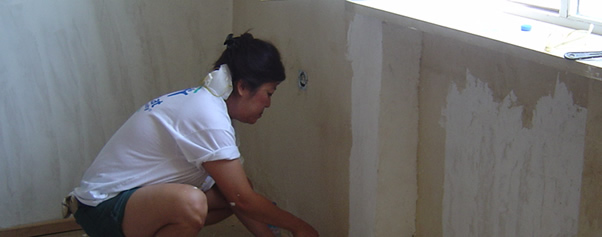The House That Junn Built
Associate Dean Builds Homes for Refugees in Armenia
December 20, 2007
By Mimi Ko Cruz
The Gevorgyans, a refugee family in Armenia, are celebrating the holidays
in their own home, thanks to Ellen Junn, associate dean of the College
of Health and Human Development, her daughter and other Habitat for Humanity
volunteers.
The Gevorgyan family of eight arrived in the Armenian village of Khor
Virab from Baku during the Nagorno-Karabagh war in 1988. They were housed
by various villagers until 1990, when they were able to obtain land and
permission to build a house. By 1992, they completed the home’s
basement themselves, but were unable to finish construction due to inflation.
Their income, $25 a month from farming and animal husbandry, could no
longer pay for construction materials and the house stood unfinished
with an aluminum roof and a few walls made of volcanic brick for 15 years.
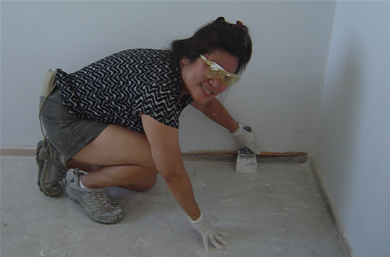
They lived in the basement until earlier this year, when Junn, her daughter
Anna, and 11 other Habitat team members erected rooms, plastered and
painted walls and made the place livable.
During their two-week stay, the volunteers also completed another home
that had stood unfinished for more than a decade. It was for the Misakyan
family, who also had been living in their basement.
“The families are so sweet, loving and grateful,” Junn said. “There
were lots of tears of joy when we finished.”
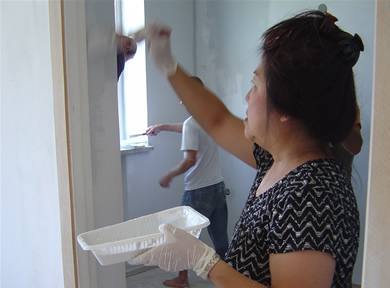
She and her daughter, a 17-year-old senior at Troy High School in Fullerton,
helped Habitat for Humanity build two homes in Santa Ana five years ago
and got hooked.
Habitat is a nonprofit organization that seeks to eliminate homelessness
around the world. It has built more than 225,000 houses. For more information,
visit www.habitat.org.
“To me, it’s very important to try and give back because
I feel so fortunate to be living in our country and, I want Anna to understand
just how privileged we are in this country, to learn about a different
culture and the value of being a volunteer,” Junn said. “I
think the experience of building homes for those less fortunate makes
us stronger, more understanding and compassionate human beings.”
Junn said that when she went to Thailand in 2000 to establish relationships
with universities as part of a Fulbright grant that she secured, “the
poverty and pollution was surprising.”
That’s when she decided her daughter needed to learn that many
Americans take their comfortable lives for granted.
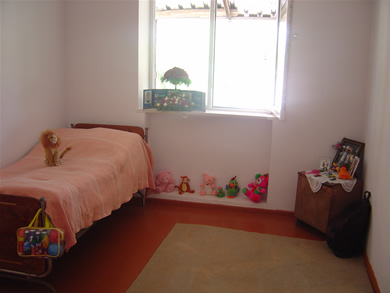
This is one of the completed bedrooms in one of the houses.
“I wanted her to appreciate what she has and to gain a sense of
wanting to give back, so we signed up with Habitat,” Junn said.
Her daughter, who plans a career in social science, has learned the lesson
and said “she is impressed with how people, even in such dire poverty
in Armenia, seemed very content and hard-working,” Junn said.
"As an academic," she said, "I have experience with and
know the power and efficacy of making larger social change via legislation
and political advocacy, but sometimes, when political forces move slowly,
I also find value in throwing my efforts at a more micro-level, taking
time to build homes for one family at a time. For me, it was a true privilege
to be part of this small, but significant effort."
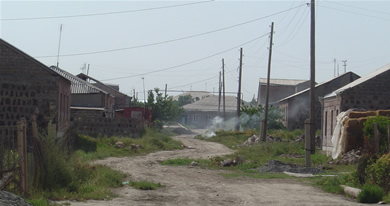
This is the Armenian village where Junn and other Habitat for Humanity
volunteers completed two homes.


